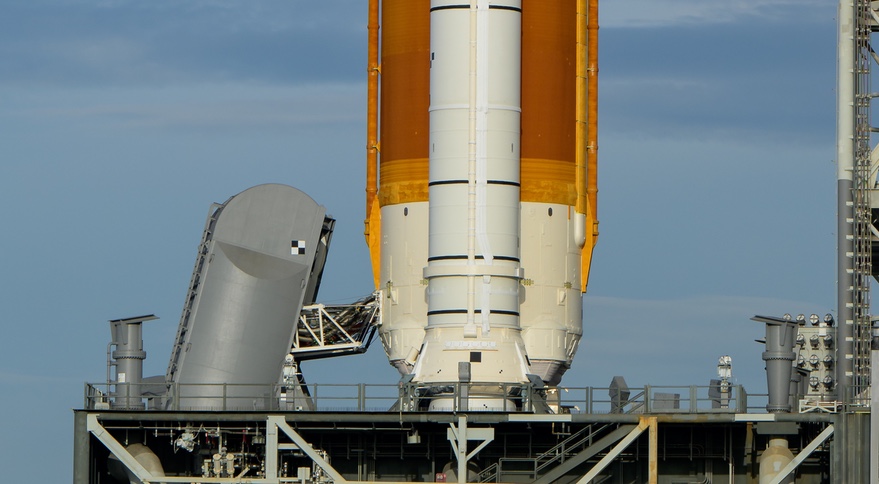PARIS — NASA officials say they’re ready to try a new approach to fueling the Space Launch System to prevent the return of leaks that scrubbed an earlier launch attempt even though they are not certain what caused that leak.
Preparations are underway for the Sept. 21 tanking test of the SLS at Launch Complex 39B, with loading of liquid hydrogen and liquid oxygen propellants into the core stage beginning at around 7 a.m. Eastern. After filling the tanks of the core stage and upper stage, controllers will conduct tests of a “kickstart bleed” of hydrogen into the core stage engines and a pre-pressurization test before wrapping up at about 3 p.m. Eastern.
The main objective of the test is to confirm that repairs to seals in liquid hydrogen lines into the core stage, as well as other changes in procedures, eliminate a significant leak seen in the second attempt to launch the rocket on the Artemis 1 mission Sept. 3. Controllers saw concentrations of hydrogen in the enclosure around the connection at least two times a limit of 4%.
Workers replaced the seals for two liquid hydrogen quick-disconnect fittings. The larger one, 20 centimeters in diameter, has a “witness mark” or indentation associated with foreign object debris, said Mike Sarafin, NASA Artemis mission manager. The size of the indentation was about 0.25 millimeters. “An indentation of that size does provide an opportunity for a pressurized gas to leak through that,” especially hydrogen, he said.
However, later in the call agency officials backed away from the hypothesis that the foreign object debris caused the indentation, noting that no debris was recovered. They even hesitated to conclude the indentation was the source of the leak.
“There are just so many things that could have created the indentation. We believe that indentation is consistent with the leak, but we don’t fully know that, either,” said John Blevins, NASA SLS chief engineer.
Tom Whitmeyer, deputy associate administrator for common exploration systems development at NASA Headquarters, noted the leak did not appear during the first SLS launch attempt Aug. 29. He suggested that multiple factors may have played a role in the leak.
“There’s certainly more than one aspect for this condition that we don’t really fully understand,” he said. “We’ve looked at every path possible that could be related to it and making sure that we’ve done everything we can.”
That includes a new “kinder, gentler” loading approach for liquid hydrogen, using less pressure to push liquid hydrogen through the lines into the core stage. “We’re trying to minimize both pressure spikes and thermal spikes,” said Jeremy Parsons, deputy manager of the Exploration Ground Systems program. “The team feels this helps mitigate some of the risks.”
Agency officials said they should know pretty quickly after the test if the new seals and fueling process were successful in preventing a reoccurrence of the leak. However, that alone will not be enough to clear the way for a Sept. 27 launch attempt, the next available opportunity. NASA is still working with the U.S. Space Force, which operates the Eastern Range, to obtain a waiver for the SLS flight termination system (FTS). That system’s certification expired after the last SLS launch attempt.
“Right now, we’re still in the process of having technical discussions with the range. It’s been very productive and collaborative. We just need to see where those discussion take us,” Whitmeyer said.
A decision on an FTS waiver is not expected until after the tanking test, Jim Free, NASA associate administrator for exploration systems development, said in a Sept. 18 presentation at the International Astronautical Congress here.
Approval of the FTS waiver, and of a Sept. 27 launch, could come down to the wire. A mission management team meeting is scheduled for Sept. 25, said Sarafin, a “formal decision gate where we will decide on whether we want to proceed that particular attempt.”
A decision could come sooner, he added. “It depends on what the outcome of Wednesday is and what, if anything, we need to change or learn between now and then.”
